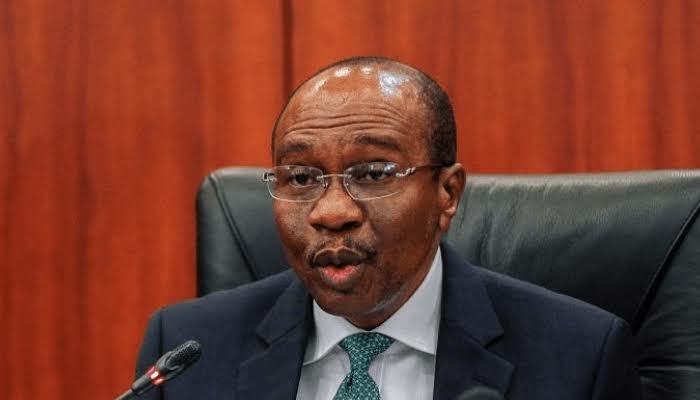The Central Bank of Nigeria (CBN) has released N3.5 billion rebate incentive to various exporters who sold goods through the Importers and Exporters Window.
The CBN Governor, Mr Godwin Emefiele, made the announcement at the Bankers’ Committee’s 30th meeting on Thursday.
Central Bank of Nigeria had in February announced policies, plans and programmes for non-oil exports that would enable Nigeria earn 200 billion dollars in foreign exchange repatriation.
Speaking virtually on the outcome, the Managing Director of Fidelity Bank, Mrs Nneka Onyeali-Ikpe, said that the initiative was in fulfilment of Emefiele’s promise on the policy of the ”Race to 200 billion dollars in FX repatriation”.
“At the 30th meeting of the Bankers Committee earlier today, the Central Bank Governor announced the immediate release of rebate, totaling N3.5 billion incentives to our various exporters in fulfilment of his promise on the policy of the Race to 200 billion dollars from non-oil export, to boost the foreign exchange inflows into the country.
“The initiative is to encourage value addition to export products of Nigeria, specifically the policy spoken to value addition in place of immediate which is, semi-finished products, intermediate, which is semi-finished products and completely finished products.
“You would recall that the CBN Governor announced rebate of N65 for every dollar of export proceeds sold to another end user while the proceeds from export utilised by the exporter will attract a rebate of N35,’’ she said.
According to her, there are 150 customers at various levels who will be benefitting from the money.
She said, “Some under the finished goods and some under the semi- finished goods that have qualified for the rebate. The money is going to be paid quarterly and it’s for the first quarter.
Onyeali-Ikpe also said that the governor pronounced a long term finance scheme of single digit for state governments as incentives to set up export processing zones and terminals.
She added, “this rebate we’ve just announced will be paid quarterly to exporters who qualify. The incentives to the government will be at single digit and there will be long term financing.’’
She said that the only state government that had concluded its port was Plateau, saying that all the others are at different levels of engagements.
Onyeali-Ikpe also said that since the launch of the new policy, the country had received 60 million dollars in foreign exchange
The Managing Director of WEMA Bank, Mr Ademola Adebise, who spoke on the initiatives being given to expand the different payment options in Nigeria, especially the NQR Code, said, “this is complementary and basically geared towards improving the efficiency of our payment platform system and very shortly, the NQR code will be acceptable in well over 176 countries.
“So, the committee decided after appraising the progress made on the adoption to increase the level of awareness of this platform, considering the huge benefits that it bring to the economy.
He urged Nigerians to access the NQR code and the eNaira on banks’ mobile app or digital platforms.
The Managing Director of Guaranty Trust Holding Company(GTco), Mrs Miriam Olusanya, who spoke on the progress of the eNaira, said that the app had been dowloaded over 756,000 times with 165,000 retail consumer wallets and 2,800 merchant wallets since its launch six months ago.
“This is not unique to this app. This is what we usually see with any new app,’’ she said.
Olusanya said that in terms of adoption, the banks had been pushing it to their customers and the merchants’ numbers but which are quite low.
She added that the banks would continue pushing the merchant activation for people to find where to spend their eNaira.
She also said that the banks had planned to move to the phase two of the eNaira which would be able to capture the un-banked, using the USSD platform to aid financial inclusion.
The Managing Director of Sterling Bank, Mr Abubakar Suleiman, said,“in addition to the payment system, we have also extensively discussed impact of the great resignation with so many of our very experienced talents, especially in the areas of software engineering, either leaving the industry or leaving the country.
“We are committed to using industry platform like the Chartered Institute of Bankers of Nigeria to drive the process of training moral skills in the areas where we see deficits with the hope that this will improve the availability of talents within the banking sector to drive innovation.
“This will be funded by the industry and will be part of our contribution toward talent and development,’’ he said.

















Discussion about this post